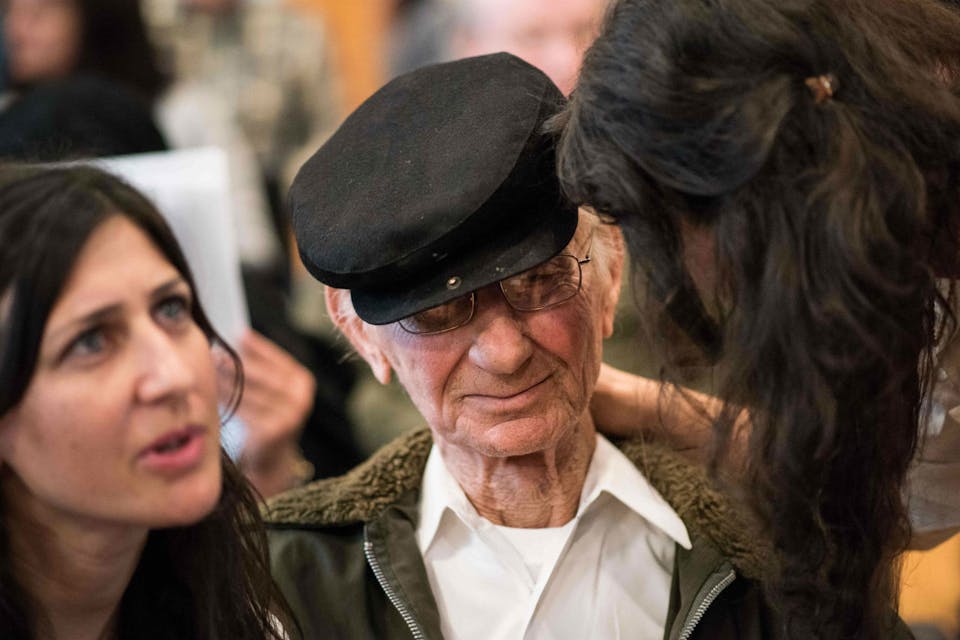
January 26, 2017
The Obligations of Auschwitz
By Jonathan SilverMy grandfather, who survived five Nazi camps, built in their shadow a life that consisted above all of children and grandchildren. The same is demanded of us all.
What is at the core of Jewish identity in America, and what is at the margins? A few years ago, the Pew Research Center asked that question in a nationwide survey whose results were published in A Portrait of Jewish Americans. The answers are illuminating. When it comes to their priorities, American Jews report that “having a good sense of humor” is roughly twice as important as “observing Jewish religious law,” and “working for justice and equality” is twice as important as “belonging to a Jewish community.” But about one issue in particular, fully seven in ten American Jews agree: the consensus across all denominations of religious observance and all demographic variables is that a core determinant of their Jewish identity is memory of the Shoah.
In 2013, when Pew’s report was published, the median age of Jewish adults in America was fifty, which means that most of those surveyed were born decades after the Holocaust came to an end. For me, the grandson of a Holocaust survivor, there’s no puzzle about this: memories informed by my grandfather’s presence in my life are indeed a foundation of my own Jewish identity. And I’m gratified to know that a similar conviction is still alive in the minds and hearts of so many other American Jews.
And yet, so many decades after the events, what exactly does this signify, and how, if at all, is it connected with the other Pew findings about the nature of Jewish identity in America? In what exactly, if anything, does honoring the memory of the Holocaust consist? What, if anything, does it demand of us?